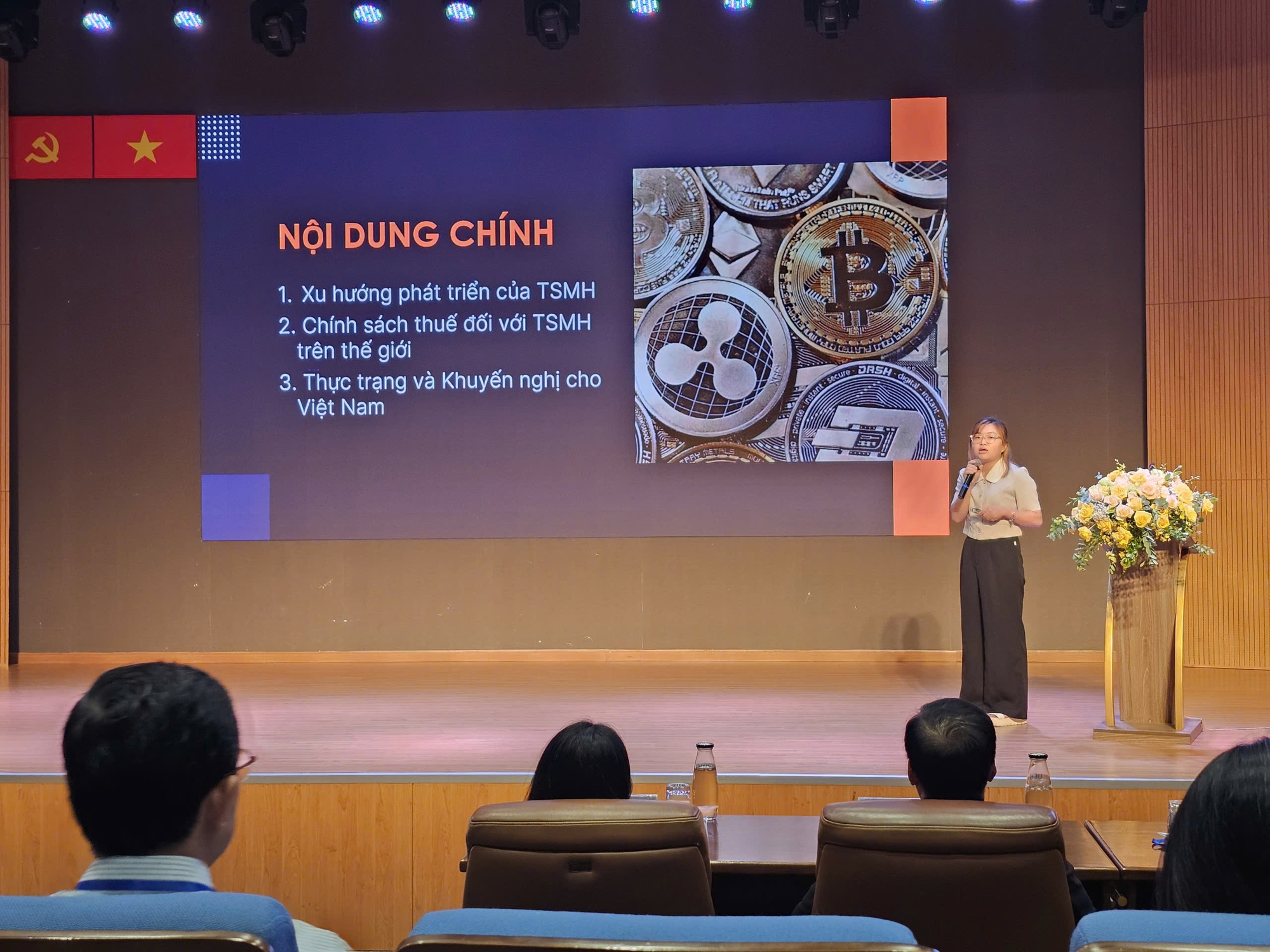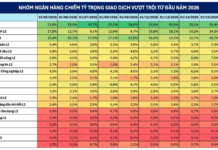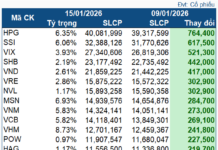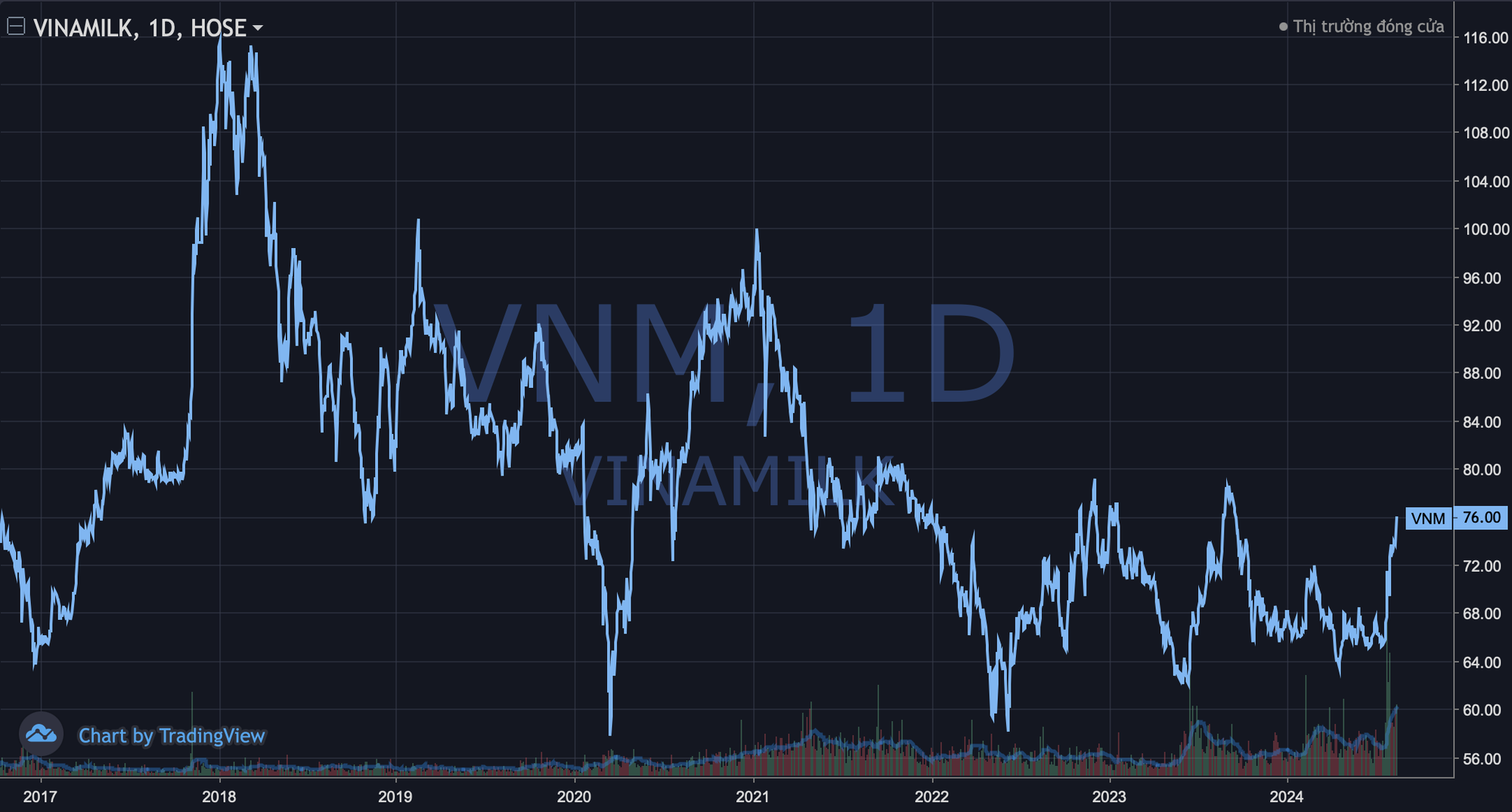On October 3, 2025, at the National Scientific Conference on Economics, Law, and Public Administration, organized by the School of Economics, Law, and Public Administration (CELG) under the University of Economics Ho Chi Minh City (UEH), Ms. Luu Anh Nguyet, Deputy Head of the Financial Market Development Division at the Institute for Economic and Financial Policy Strategy, Ministry of Finance, presented a paper on the cryptocurrency market.
She highlighted that Resolution 05/2025/NQ-CP on the pilot cryptocurrency market, recently issued by the Government, is a crucial step to foster the development of the digital asset market.
However, Ms. Nguyet pointed out that Vietnam currently faces significant gaps in tax policies for cryptocurrencies. Tax collection on these assets is hindered by their anonymity and decentralization, leading to low compliance rates and potential tax evasion.
Therefore, she recommended establishing a clear classification system for cryptocurrencies, reflecting their economic nature and allowing categorization as securities, commodities, or payment instruments based on usage, following the examples of Singapore and Australia.

Ms. Luu Anh Nguyet, Deputy Head of the Financial Market Development Division, Institute for Economic and Financial Policy Strategy, Ministry of Finance, speaking at the conference
Strengthening reporting obligations, requiring cryptocurrency exchanges and virtual asset service providers (VASPs) to supply transaction data, will aid tax authorities in monitoring and cross-referencing.
Proactively engaging in global cross-border tax initiatives, signing information exchange agreements, and harmonizing regulations will curb offshore transactions aimed at tax evasion.
Treating cryptocurrency transactions based on their economic substance ensures fairness and avoids unnecessary advantages or barriers compared to traditional financial transactions.
Additionally, regulatory bodies should invest in modernizing tax management technology, enhancing personnel capabilities, and institutional frameworks to effectively monitor, analyze data, and enforce regulations.
Regarding the recent controversy surrounding the Antex cryptocurrency project led by Shark Binh (entrepreneur Nguyen Hoa Binh), Ms. Nguyet noted that while cryptocurrency transactions are anonymous, they are inherently transparent due to traceable blockchain code and data.
Specifically, funds from investors transferred to project wallets, and subsequent movements across related wallets, including personal ones, are publicly trackable. This implies that with appropriate monitoring tools, regulatory bodies can feasibly trace fund flows.
This insight, drawn from international experience, is vital for Vietnam to develop its digital asset market while ensuring transparency and investor protection.
Dr. Tran Thi Tuan Anh, Vice Dean of CELG, UEH, stated that the conference was structured into four main sessions.
The first session focused on Public Financial Policy and Taxation under the impact of digital transformation, restructuring, and global fluctuations.
The second session addressed sustainable business practices, emphasizing green finance solutions, ESG governance, and circular business models.
The third session highlighted Vietnam’s economic focus for 2025.
The fourth session discussed public value creation, covering institutional reforms, public governance modernization, and technology’s role.
“The conference will offer diverse perspectives, shaping public financial, tax, and governance solutions to meet Vietnam’s sustainable development needs in the digital and globalized era,” Dr. Tran Thi Tuan Anh remarked.
Finance Ministry Announces Licensing for Crypto Asset Services
As of now, no company has submitted an application to provide cryptocurrency services, according to Deputy Minister of Finance Nguyen Duc Chi. However, several businesses have expressed interest and engaged in preliminary technical discussions with regulators to fully understand the requirements and conditions, paving the way for formal proposals in the near future.
“Transforming Trillions in Fraudulent Funds into Cryptocurrency Assets”
Authorities report that in cases of online fraud, the majority of stolen funds have been converted into cryptocurrency through transactions on international exchanges. Statistics reveal that between December 2019 and May 2024, nearly 20,000 fraud cases were detected, involving over 17,000 perpetrators and causing losses exceeding 12 trillion Vietnamese dong.
Amidst Allegations of $250 Million Embezzlement, Stock Plunges After Crypto Asset Firm Investment
This brokerage firm has garnered attention for its strategic investment in VimExchange, a leading corporation specializing in cryptocurrency and digital asset trading.




















